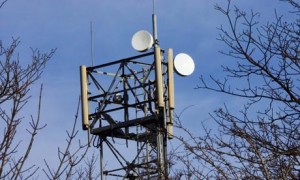Last week, Ofcom finally opened its long-awaited consultation on the auction of the 800MHz band of spectrum, the bit freed up by the switch from analogue to digital TV.
Why is this so important?
Low frequency spectrum, like this 800MHz band, has an extremely long range – up to a 40km radius from a base station - making it ideal for providing mobile broadband in sparsely-populated rural areas. Using this spectrum, 4G technologies like LTE could offer download speeds of around 5Mbps to 12 Mbps and upload speeds of between 2Mbps and 5Mbps.
4G mobile broadband could be the quickest, easiest and cheapest way to get everyone in rural Britain a basic broadband service.
The problem is that Ofcom doesn’t see it that way.
Ofcom will auction licences to use the 800MHz band to the highest bidders. These licences will come with conditions, the most important of which is the coverage obligation.
Ofcom is proposing to oblige licensees to a build a network that is capable of “providing mobile broadband with a sustained downlink speed of no less than 2Mbps with a 90% probability of indoor reception to an area within which at least 95% of the UK population lives.”
The first problem with this is that Ofcom has stopped at 95% of the population. That means 3m people won’t get mobile broadband.
The second problem is that these 3m people are the same people who don’t currently have access to decent fixed line broadband because they live in the most rural parts of Britain.
The third problem is that Ofcom has decided not to use this opportunity to address existing mobile phone notspots. Instead, it’s proposing to map the 4G network onto the current mobile network, i.e. if you can’t get a mobile signal where you live now, you won’t be able to get 4G.
So, Ofcom has decided that 3m people aren’t worth bothering about.
They reckon that the cost of obliging mobile companies to build more base stations, and thereby extend their mobile voice and broadband coverage in rural areas, is greater than the economic and social benefits that such coverage would bring to rural communities.
But Ofcom has no evidence for this conclusion. In paragraph 6.15 of the consultation, it admits to not even having tried to quantify the costs of obliging mobile phone companies to extend their coverage. And it’s made even less effort to quantify the potential benefits. When asked why it hadn’t done this work, Ofcom replied ‘it’s not our problem’.
So, what can we do about this?
Respond to the consultation. Questions 6.1 to 6.5 are the relevant ones.
First, we must explain to Ofcom what kind of coverage we need, both in terms of range and specification, i.e. do we need coverage indoors? On our roads? In our fields? Everywhere? Is 2Mbps too little? (Bearing in mind that the costs rise exponentially). (Question 6.1)
Second, we must set out the benefits – the necessity - of extending mobile phone and broadband coverage into rural areas. The costs can best be estimated by the mobile phone companies themselves, but it will be our job to provide qualitative and quantitative evidence of the benefits. (Question 6.2)
Third, we must persuade Ofcom that this auction is a unique opportunity to tackle both the roll-out of mobile broadband and the existing lack of mobile telephone reception in rural Britain. (Question 6.4)
Ofcom and the Treasury will want to argue that the costs outweigh the benefits. To forego some of the billions of pounds that an auction could raise will be painful for the Treasury at a time of austerity. It will be hard to persuade these economists that investment in rural areas is justified: the costs of major infrastructure projects are easy to measure, the benefits are notoriously unquantifiable.
So, we need to make sure that the question of mobile voice and broadband coverage in rural areas becomes a political one.
The social and economic welfare of rural Britain is at stake. If Ofcom and the Treasury are determined to argue that an investment in rural infrastructure is uneconomic, we should demand that they put some robust figures on this graph:
And, simultaneously, we should begin the political campaign here. How do you think we go about doing this? Besides, responding to the consultation, I’d suggest a petition, a website, and a social media campaign for starters. Anyone got any good ideas for an awareness-raising publicity stunt? Let us know!
PS. Here’s a useful report from the Broadband Stakeholder Group on Wireless Broadband with costings.
 The committee has thrown its weight firmly behind the idea of increasing the coverage obligation attached to one 4G licence to 98% of the population.
The committee has thrown its weight firmly behind the idea of increasing the coverage obligation attached to one 4G licence to 98% of the population. According to the maps, 97% of premises and 66% of the UK landmass can receive a 2G signal outdoors from all four 2G networks.
According to the maps, 97% of premises and 66% of the UK landmass can receive a 2G signal outdoors from all four 2G networks.
Latest Tweet from @bbcumbria
No public Twitter messages.